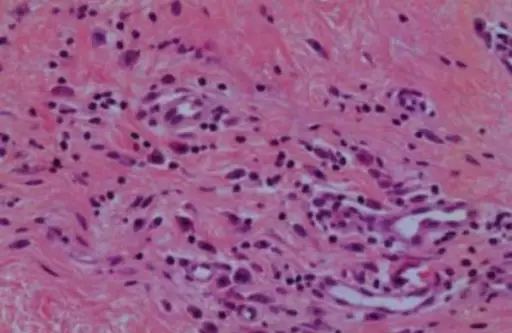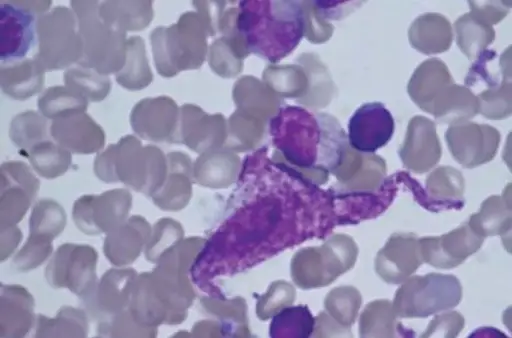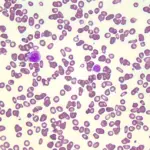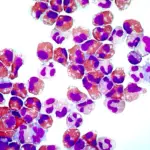Systemic mastocytosis is a blood disorder characterized by infiltration of clonally derived mast cells in different tissues, including bone marrow, the gastrointestinal (GI) tract, the liver, and the spleen.
What is the Pathology of Systemic Mastocytosis?
The pathology of systemic mastocytosis is:
-Etiology: The cause of systemic mastocytosis is a random change (somatic mutation) in the KIT gene.
-Genes involved: KIT gene.
-Pathogenesis: The sequence of events that lead to systemic mastocytosis is the result of chronic and episodic discharge of mast cell mediators and excessive accumulation of mast cells in one or more tissues.
-Histology: The histology associated with systemic mastocytosis shows focal mast cell lesions in the bone marrow.
How does Systemic Mastocytosis Present?
Patients with systemic mastocytosis typically affects males and females equally, present mainly during adulthood with 55 years as median age at diagnosis. The symptoms, features, and clinical findings associated with systemic mastocytosis include flushing, itching or hives, abdominal pain, diarrhea, nausea or vomiting, anemia or bleeding disorders.
How is Systemic Mastocytosis Diagnosed?
Systemic mastocytosis is diagnosed by biopsies of tissues or organs affected revealing an abundance of mast cells, measuring mast cell mediators in blood and urine, blood counts, liver function studies and genetic tests.
How is Systemic Mastocytosis Treated?
Systemic mastocytosis is treated using antihistamines, steroids, epinephrine, mast cell stabilizers and other medications to relieve the symptoms. More aggressive forms may require interferon, immune modulators or chemotherapeutic agents.
What is the Prognosis of Systemic Mastocytosis?
The prognosis of systemic mastocytosis varies widely because systemic mastocytosis can range in severity. People who have more aggressive cases of mastocytosis may not survive more than a few years after diagnosis. People with less aggressive mastocytosis have a typical life expectancy.





